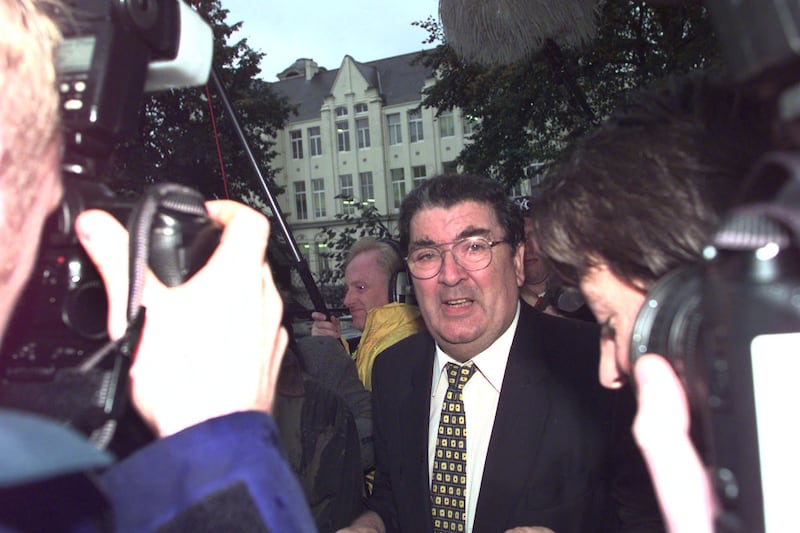SENATOR George Mitchell has paid tribute to David Trimble's "courage and determination", saying that without the former Ulster Unionist leader there would have been no Good Friday Agreement.
The chair of the all-party talks that led to the 1998 peace accord said he was saddened to hear of Lord Trimble's passing on Monday at the age of 77.
Senator Mitchell said people across Ireland and Britain "owe David a heavy debt of gratitude for the personal and political sacrifices he made".
"There would have been no agreement on April 10, 1998, without the courage and determination of David Trimble," he said.
"His willingness to take very difficult decisions was a key factor that enabled the two governments and the participating parties to reach agreement."
The senator extended his condolences to the Nobel Laureate's wife and four children, describing the deceased as a "major political leader whose courage and determination saved hundreds of lives and changed for the better thousands more".
The US senator not only chaired the Good Friday Agreement negotiations but also oversaw a review of the accord the following year, which was designed to break the post-accord deadlock over decommissioning.
The peace process had stalled the previous July when Mr Trimble refused to implement the agreement unless the IRA made a commitment to give up its weapons.
While the process faltered and even collapsed over subsequent months and years, the senator's review saw a major breakthrough in relations between unionist and republican leaders, who up to this point had kept each other at arms' length.
Rather than convening the face-to-face talks in the austere surroundings of Castle Buildings where the previous year's negotiations had climaxed, Sen Mitchell elected for the grander surroundings of Winfield House in London's Regent's Park, home of the American ambassador.
The format was deliberately different to its predecessor, with much smaller delegations and a less formal structure.
The main discussions involved David Trimble and Reg (now Lord) Empey, with Gerry Adams and Martin McGuinness representing the republican side.
While the early exchanges were, in Senator Mitchell's words, "harsh and filled with recrimination", the protagonists not only worked together, but dined together. The senator had insisted that they mingle at the table and not be seated opposite each other.
"I insisted that there not be any discussion of issues at the meals, that we just talk about other things so that they could come to view each other not as adversaries but as human beings and as people living in the same place and the same society and wanting the same thing," he recalled.
It was at Winfield House that unionists and republicans concluded that they could do business with each other.
Mr Trimble ultimately conceded that the IRA was simply not going to decommission weapons simultaneously with the formation of a new executive. He settled instead for the idea of statements from the IRA and Sinn Féin, reiterating the republican commitment to the peace process and confirming that the IRA would appoint a go-between to meet General John de Chastelain's commission.








